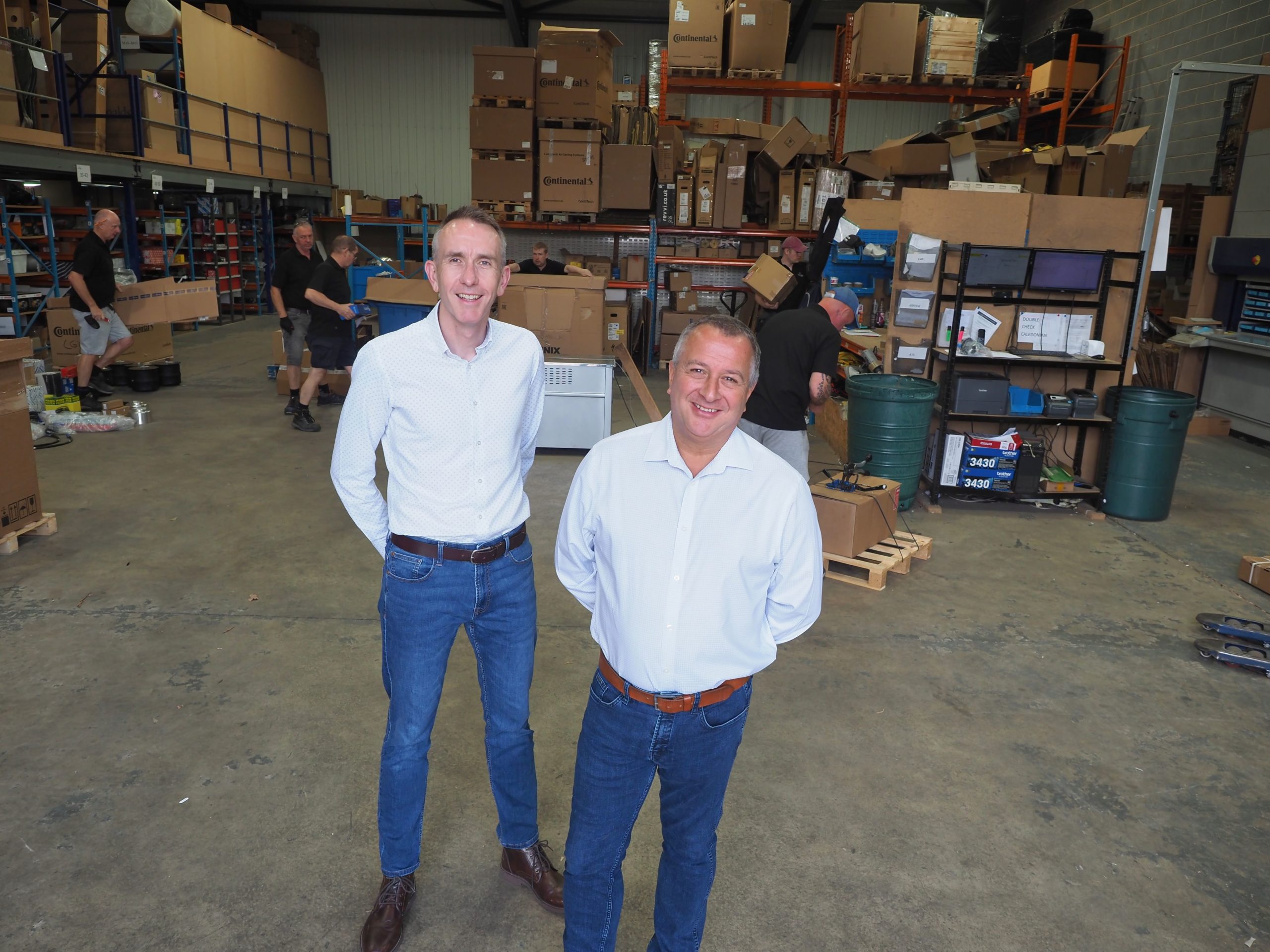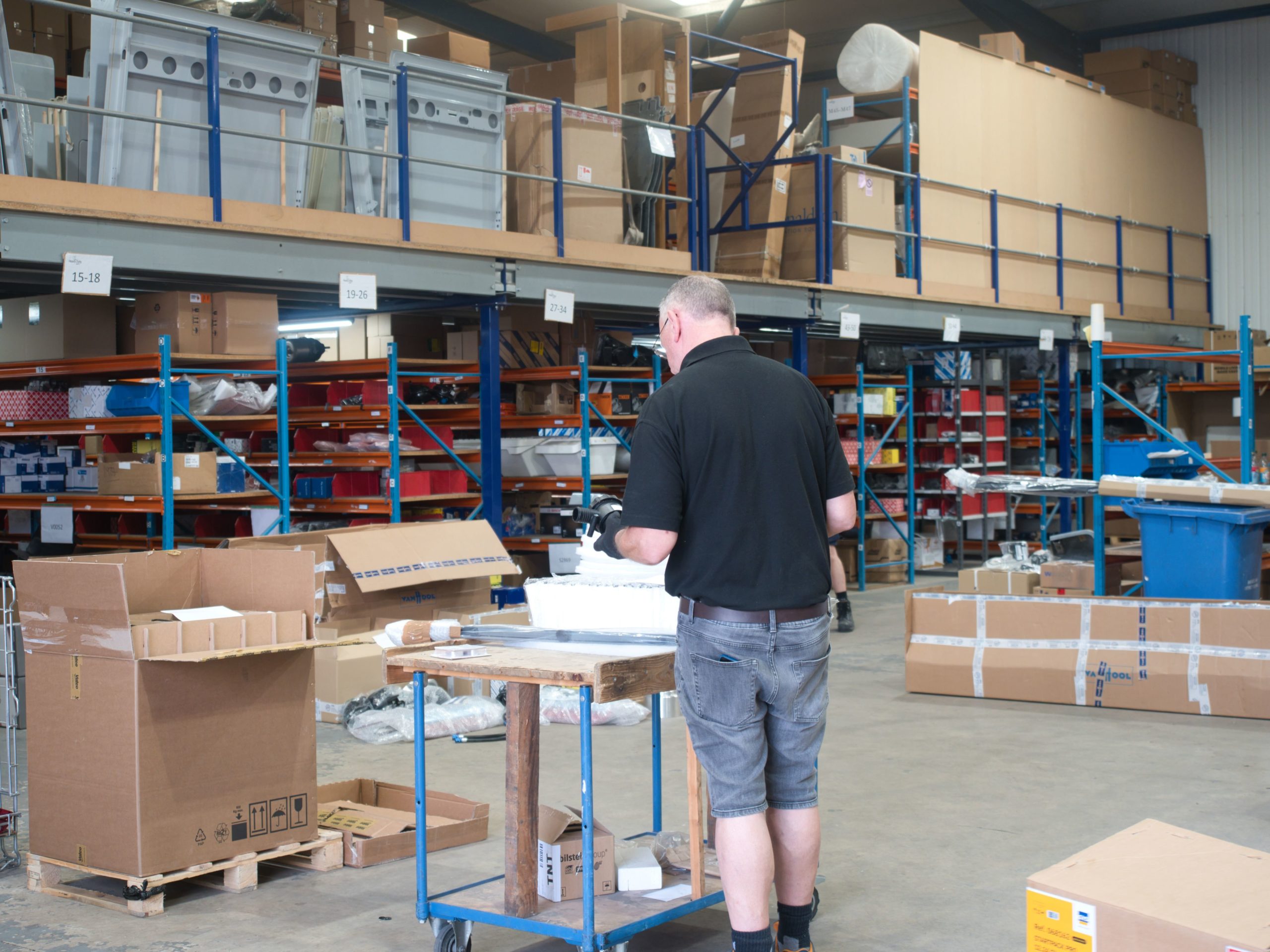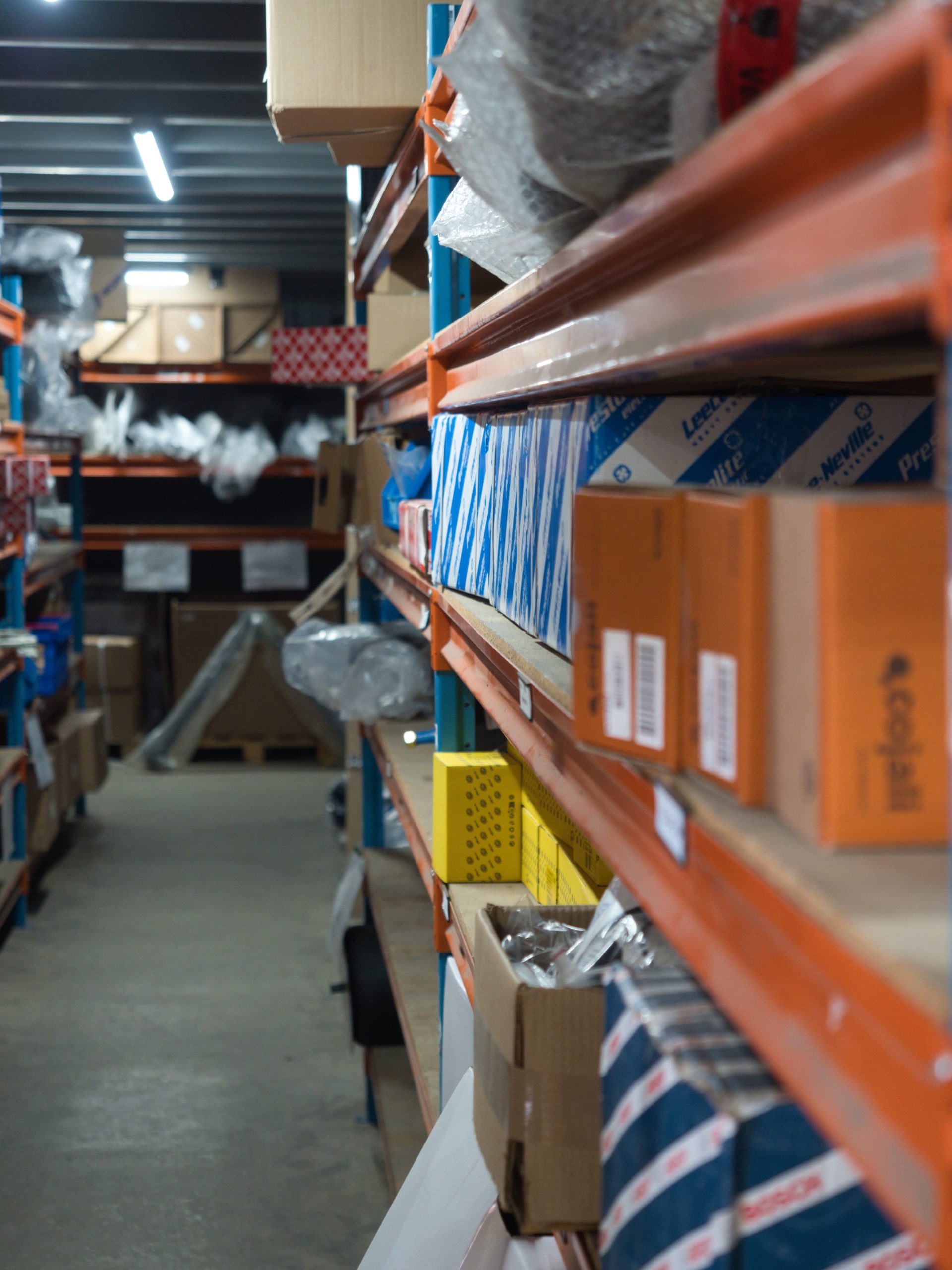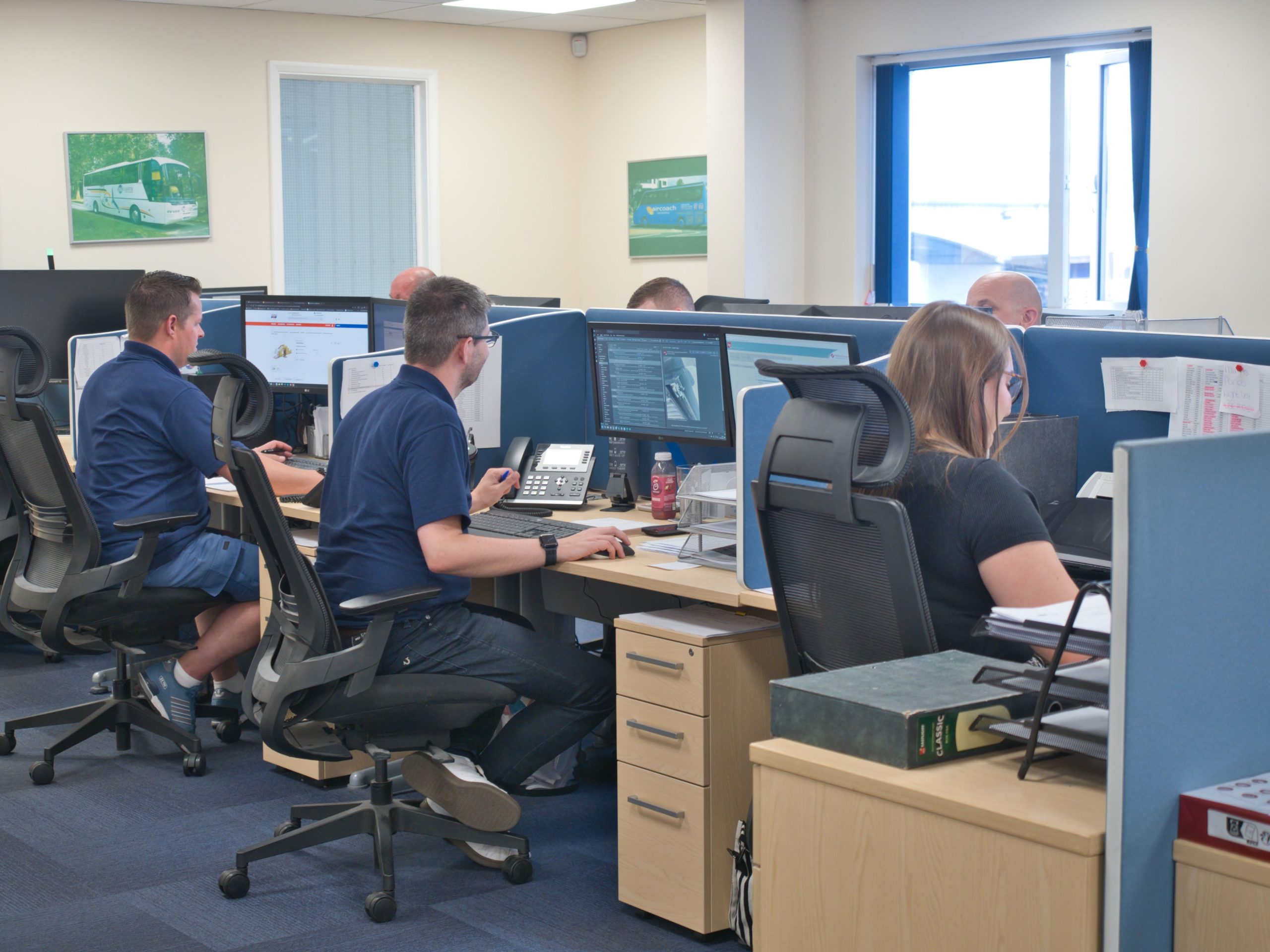HDP, 30 years on
Three decades of trading has seen Heavy Duty Parts have to adapt to changes in the vehicle parc but one this that won’t be changing is its commitment to personal, one-to-one service
It’s one thing to be sharp enough to spot an opportunity but quite another to sustain a business with it for three decades.
That’s what Heavy Duty Parts has done ever since its inception, which saw a young entrepreneur, Kevin Booth, and the long experience of his business partner, Jack Miles, launch the company, at first as a supplier of parts for German coaches but, as the business developed, as supplier of coach parts from almost all brands.
The opportunity Kevin saw was the opportunity to short-cut the supply chain by going direct to European component manufacturers. Most coaches are built from established products, such as Knorr-Bremse brakes and WABCO air systems, so the acquisition of a new OE part number is, says Kevin, the only difference between the factory-gates product and the dealer-supplied version. That, and a different price.

New MD Gareth Smith and co-founder of HDP Kevin Booth
So, with Jack, Kevin set about unravelling supply chains so that Heavy Duty Parts could supply quality parts at lower prices. And that part of the business model remains.
What has changed is the range of marques covered and the size of the business, which has grown from a turnover of £1.7m around the time that Jack retired to £12.5m this year. Before HDP, Kevin’s background was as one of the founders of Carlton PSV, along with his HDP business partner, Jack Miles. Carlton PSV imported Neoplan to the UK in the 1980s and introduced the Skyliner to the UK.
After a bodyswerve into Stagecoach to run its group purchasing office, Kevin – in his early 20s at the time – and Jack took the plunge and, in 1994, launched Heavy Duty Parts to supply Neoplan parts to the parc which they (along with Tony Lavin) had created at Carlton PSV. It was an instant success and, as the company grew, began to supply Setra, MAN and Mercedes-Benz parts – a natural evolution as Kevin sought out suppliers on trips across Europe.
After beginnings using Jack’s home for the business base, the pair soon bought and moved to a new base, which remained the hub of the business until 2004, when Jack retired. Kevin found the ideal site for the growing parts stock at the Hallcroft Industrial Estate in Retford, and bought it. Kevin retained the old site and developed it into his family home…
“Heavy Duty Parts was my idea. It came while I was at Stagecoach – it was a good job. I was only in my early 20s and had a good salary and company car. That probably stopped me setting it up earlier. I was living the dream,” says Kevin. Jack left Stagecoach to sell truck panels and a gearbox component maker. “Jack was the UK agent for two companies. “Then Anne Gloag at Stagecoach wanted me to go to Malawi.

The warehouse is close to full with £1m in parts
“I turned that down, then she wanted me to go to Scotland, which back then I thought was as bad as Malawi. So I explained that I wanted to set up on my own and we had a hand-over period. I went to Jack and suggested he sold his truck bits while I sold coach bits together under one roof, and split everything. Jack’s agencies didn’t last long and within two years, it was all coach parts.
“Jack could sell sand to Arabs. They don’t make them like Jack any more. He was 50 when he retired. I bought his half and grew the business from there. When he decided to go, to set the price for his half of the business, he went away and wrote down what he wanted and I wrote down what I thought the business owed Jack. We were just £50,000 apart – that’s how close we were, and still are.” Such was Jack’s importance in the founding of HDP that the company has a picture of him hanging on the wall.
To the source
Where possible, HDP buys parts from as close to manufacture as possible, and always OE parts; the company never sells pattern parts.
Some parts, explains Kevin, are ‘captive’ parts – sold only by the coachbuilder. But even those parts were being sold in Germany at lower prices than the UK, and HDP could still get a good margin after the cost of importing them. In recent years, says Kevin, parts makers have been bearing down on pricing differentials: “Over the last 10 years, they’ve been addressing this ‘pricing corridor’ gradually. But even now, you’ve probably got 10-15% differences within the EU.”
That was never going to hold back Kevin: “Outside of the EU, where the pricing corridor can’t be enforced, we can still find what we want.”
Kevin’s new Managing Director, Gareth Smith, has seen the process in action: “The same thing as happened here 30 years ago happens now. We get a delivery of some new parts or something we’ve not sold before and Kevin’s down there in the warehouse, part out of the box, checking numbers, seeing if he can find out where that part was originally assembled, and if Kev’s not here, we have two other guys doing exactly the same thing. That happens every time we have a part we’ve not had before.”

The number of marques represented in stock is now large
Gareth says the process is that HDP never settles on the profit they have made today, because if they can find a better supply route, the customer benefits from a lower price. As Kevin points out, some coach manufacturers have found ways to prevent circumvention of the system: he says Daimler has created a special bulb for new Tourismo rear light clusters in which it has IP, and it cannot be sold in the aftermarket.
Picking the right parts to stock and sell is a dark art, but HDP has managed to time its stock well. For example, it decided to stock Van Hool spares around the time of the pandemic, as Arriva closed: “That left only Carlyle and Van Hool UK at Wellingborough supplying parts,” says Kevin. Both have, of course, now gone.
The turnover of stock is colossal, with a pallet of parts delivered every day as a minimum, making their way to Retford via established supply routes and carriers. There is £1m in stock held, and it is turned over every month.
Deciding what to stock is based on demand: “If someone wants something we haven’t got, we’d expect to supply it within a week. If we get the same thing ordered three times in a year, we stock it,” says Kevin, who says the ebb and flow of parts is influenced by the fail point of vehicle components.

When you call HDP you reach a real person every time
A new model may have a weakness which reveals itself after a year, and that can be true of all similar vehicles, resulting in a wave of orders. Heavy Duty Parts will be spotting these patterns as they arise, ready to stock the relevant component.
Although parts prices have risen, HDP says it hasn’t seen huge changes recently, other than inflation increases: “Since Covid, we’ve maybe seen 15% price increase in total.”
Gareth believes that a part of the recent increases in insurance cost is because of the rising cost of bodywork repairs, with the skilled technicians an ageing workforce who are now enjoying healthy pay rises. With a background in bodywork repair, he’s likely to know.
What sets HDP apart from many suppliers is its absolute determination to have a personal approach. HDP will never, says Kevin, have parts ordering on-line: “If you call us, you will never get a voice saying ‘dial 1 for parts, 2 for accounts, etc’ You will speak literally 24/7 to a real human being. We’re all about communication. We want to speak to our customers.
“Some companies don’t even list a phone number or have a form to send an email. It won’t happen here.”
“The reason is that if someone phones us, we can get their problem solved there and then. We’ll stay on the phone until we’ve done that. Building relationships along the way,” says Gareth. “They’re not ringing a parts line, they’re ringing Dave or Will.”
On the occasion of its 30th year in business, there is a change afoot at Heavy Duty Parts. Kevin is gradually winding down, handing the reins to his team of 25 staff with Gareth at the helm. Kevin will progressively reduce his hours but I have a suspicion that he’ll be putting his head round the door for quite some time.